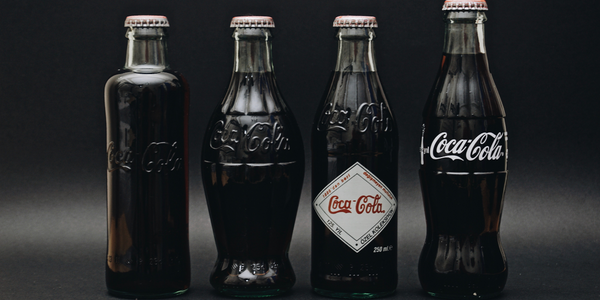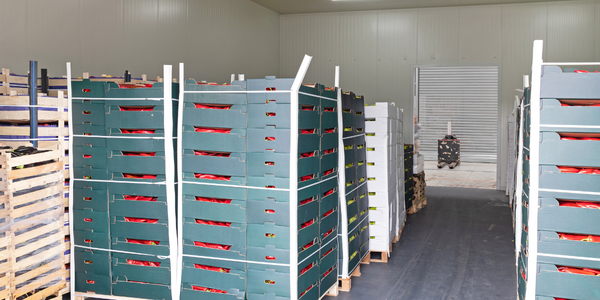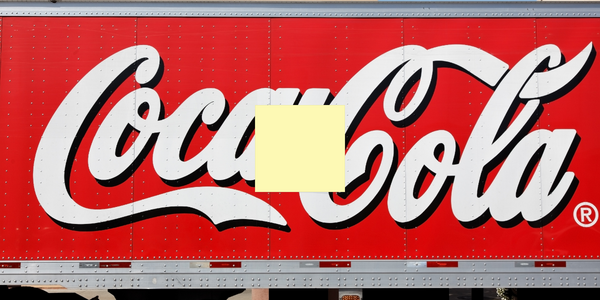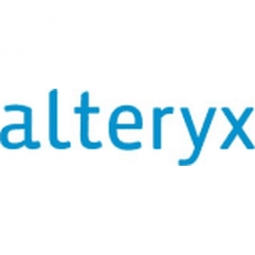公司规模
Large Corporate
地区
- America
国家
- United States
产品
- Alteryx
技术栈
- Data Analytics
- Predictive Modeling
实施规模
- Enterprise-wide Deployment
影响指标
- Productivity Improvements
- Customer Satisfaction
技术
- 分析与建模 - 预测分析
适用行业
- 食品与饮料
适用功能
- 销售与市场营销
- 商业运营
用例
- 预测性维护
- 供应链可见性(SCV)
服务
- 数据科学服务
关于客户
可口可乐公司总部位于亚特兰大市中心,是世界上最具标志性的品牌之一。该公司的历史始于 1886 年,当时药剂师 John S. Pemberton 博士发明了一种浓缩糖浆,可从冷饮机中饮用。如今,全球每天消费超过 19 亿瓶可口可乐饮料。该公司成功地在对悠久历史的承诺与对创新的不懈追求之间取得平衡,目标很简单:让人们快乐。可口可乐在整个组织中拥有数百名用户,从供应链组到数据科学团队,他们都使用 Alteryx 从可口可乐数据中获取见解。
挑战
全球饮料公司可口可乐一直在寻求平衡其悠久历史与不懈创新追求的方法。该公司一直在使用数据分析平台 Alteryx 进行各种项目,包括地理空间情报、时间序列预测和预测建模。其中一项重大挑战是从可口可乐 Freestyle 机器(一种触摸屏喷泉机,允许用户创建自己的口味混合物)中获取见解。该公司希望预测需要维护的组件并了解该国不同地区的最佳产品组合。
解决方案
可口可乐将 Alteryx 用于各种项目,包括地理空间情报、时间序列预测和预测建模。其中一个重要应用是可口可乐 Freestyle 机器。该公司使用 Alteryx 预测需要维护的组件并了解该国不同地区的最佳产品组合。Alteryx 用于挖掘来自全国各地 Freestyle 机器的大量数据。可口可乐员工 Jay 能够整理和汇总历史数据,并使用 Alteryx 自动生成并向餐馆老板发送 600 多份个性化报告。
运营影响
数量效益

Case Study missing?
Start adding your own!
Register with your work email and create a new case study profile for your business.
相关案例.

Case Study
The Kellogg Company
Kellogg keeps a close eye on its trade spend, analyzing large volumes of data and running complex simulations to predict which promotional activities will be the most effective. Kellogg needed to decrease the trade spend but its traditional relational database on premises could not keep up with the pace of demand.

Case Study
HEINEKEN Uses the Cloud to Reach 10.5 Million Consumers
For 2012 campaign, the Bond promotion, it planned to launch the campaign at the same time everywhere on the planet. That created unprecedented challenges for HEINEKEN—nowhere more so than in its technology operation. The primary digital content for the campaign was a 100-megabyte movie that had to play flawlessly for millions of viewers worldwide. After all, Bond never fails. No one was going to tolerate a technology failure that might bruise his brand.Previously, HEINEKEN had supported digital media at its outsourced datacenter. But that datacenter lacked the computing resources HEINEKEN needed, and building them—especially to support peak traffic that would total millions of simultaneous hits—would have been both time-consuming and expensive. Nor would it have provided the geographic reach that HEINEKEN needed to minimize latency worldwide.

Case Study
Energy Management System at Sugar Industry
The company wanted to use the information from the system to claim under the renewable energy certificate scheme. The benefit to the company under the renewable energy certificates is Rs 75 million a year. To enable the above, an end-to-end solution for load monitoring, consumption monitoring, online data monitoring, automatic meter data acquisition which can be exported to SAP and other applications is required.

Case Study
Coca Cola Swaziland Conco Case Study
Coco Cola Swaziland, South Africa would like to find a solution that would enable the following results: - Reduce energy consumption by 20% in one year. - Formulate a series of strategic initiatives that would enlist the commitment of corporate management and create employee awareness while helping meet departmental targets and investing in tools that assist with energy management. - Formulate a series of tactical initiatives that would optimize energy usage on the shop floor. These would include charging forklifts and running cold rooms only during off-peak periods, running the dust extractors only during working hours and basing lights and air-conditioning on someone’s presence. - Increase visibility into the factory and other processes. - Enable limited, non-intrusive control functions for certain processes.

Case Study
Temperature Monitoring for Restaurant Food Storage
When it came to implementing a solution, Mr. Nesbitt had an idea of what functionality that he wanted. Although not mandated by Health Canada, Mr. Nesbitt wanted to ensure quality control issues met the highest possible standards as part of his commitment to top-of-class food services. This wish list included an easy-to use temperature-monitoring system that could provide a visible display of the temperatures of all of his refrigerators and freezers, including historical information so that he could review the performance of his equipment. It also had to provide alert notification (but email alerts and SMS text message alerts) to alert key staff in the event that a cooling system was exceeding pre-set warning limits.

Case Study
Coca-Cola Refreshments, U.S.
Coca-Cola Refreshments owns and manages Coca-Cola branded refrigerators in retail establishments. Legacy systems were used to locate equipment information by logging onto multiple servers which took up to 8 hours to update information on 30-40 units. The company had no overall visibility into equipment status or maintenance history.



